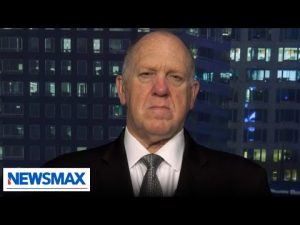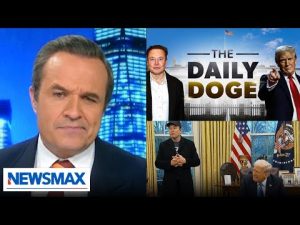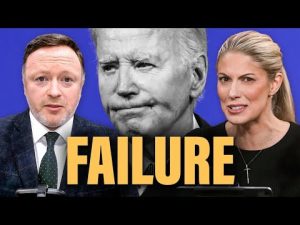In a recent hearing filled with fiery rhetoric, tensions erupted over the financial clout and political influence of Elon Musk, the world’s richest man. Critics took center stage, debating if Musk’s wealth grants him unfair advantages while the average American bears the burden of rising taxes and government spending. It is hard to believe that a single individual can have as much power over public discourse and financial regulations, but it seems that is the reality we live in.
One congressman, frustrated by the status quo, highlighted the contradictions that arise when powerful figures contribute to political campaigns. His frustration reached a boiling point as he claimed that while Musk and his companies enjoy the benefits of tax cuts, the American people receive nothing in return. It is a bizarre sight to see congressmen working themselves into a frenzy about one billionaire while ignoring the high-profile contributions made by others, particularly when it involves liberal causes. As if to underline the double standard, he pointed out how little scrutiny the financial support from certain unions and major corporations received in the past. This ironic situation has set the stage for a cultural debate between those who favor traditional values and those who back more progressive political ideologies.
In what may have been the most unusual analogy of the day, a congresswoman referenced a prior incident involving an inappropriate image shown during a hearing to question another member’s focus and ability to lead. When politics gets personal, it risks overshadowing the bigger picture, further intensifying the divide between ideological factions. While this might have been intended as an attack on the judgment of her counterpart, it may have only served to distract from meaningful discussions regarding taxation and representation.
As these congressional hearings unfold, underlying themes of American discontent with rising debt and government inefficiency continue to gain traction. Many Americans are frustrated that the government’s approach to charity often leads to forced taxation rather than voluntary support for those in need. Citizens have always stepped up to contribute to their communities through personal charity, and they argue that the government should not dictate how those funds are allocated. It is a classic case of “we want to help, but don’t take our money without our say-so!”
In the wake of such fiery exchanges, it becomes increasingly important for all parties to find common ground rather than resorting to disparaging remarks. The conversation should revolve around creating a government that not only collects taxes but also fosters an environment where businesses can thrive, and individuals feel they can trust their government. Questions regarding the ethical practices of highly wealthy individuals and their impacts on society are crucial, but they should ideally be addressed through civil discourse.
In these chaotic times, clarity of purpose can get lost in emotional outbursts. As the public looks on, it will be fascinating to see if these political leaders finally put aside their petty squabbles and work towards meaningful solutions, instead of merely tossing insults at one another, opening the door for change that genuinely reflects the will and needs of the American people. If only they could arm themselves with ideas instead of personal barbs in this proverbial bar fight called politics!



